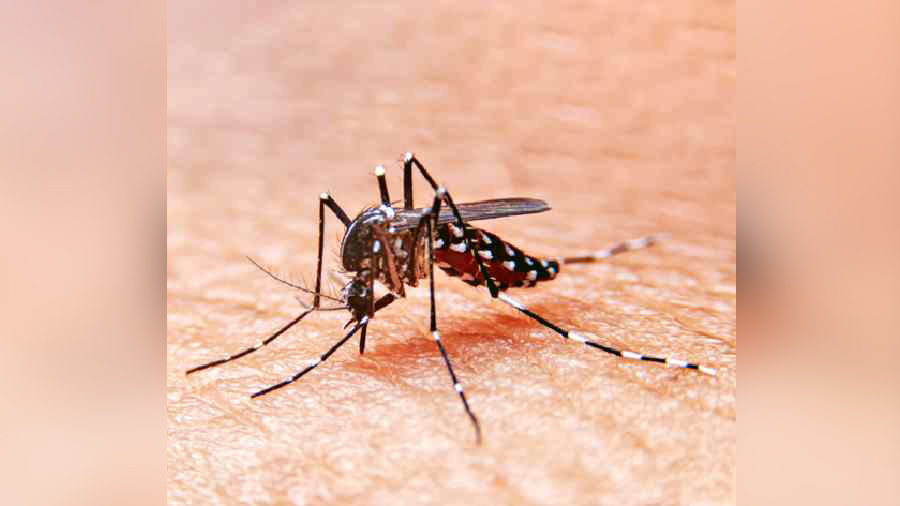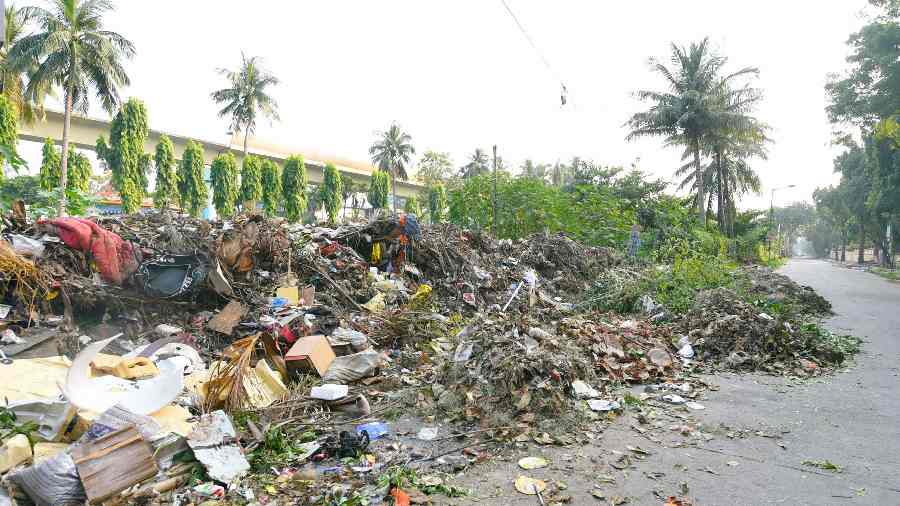Many dengue patients who are getting admitted to hospitals do not require hospitalisation.
They are doing so driven by panic or because doctors do not want to take chances, officials of several hospitals in Kolkata said on Monday.
Public health experts said lack of adequate credible information about the total number of dengue cases, the number of recovery and the number of deaths caused by the disease is a major trigger for such panic.
The state government is yet to formally announce the total number of dengue cases this year and the number of deaths till date.
Doctors and officials of several hospitals said dengue patients who are running a temperature but suffering from no other complications are seeking admission.
The RN Tagore International Institute of Cardiac Sciences had seven dengue patients admitted last week. On Monday, the number has gone up to 19.
“We have seen a sudden surge in the admission of dengue patients. Of the 19, only one is in ICU. The others are in the general ward. Most of them have taken admission as a precautionary measure,” said R. Venkatesh, COO, east and south, Narayana Health, which runs the RN Tagore hospital.
“Doctors said some of these patients can be treated at home, but since they have requested admission, the patients are being monitored,” said Venkatesh.
At Peerless Hospital, there were 32 dengue in-patients on Monday and only one of them was in ITU.
“The number of patients admitted had gone down to around 25 last week, but there has been a surge in admission again in a couple of days. The platelet count of most of them is far more than 50,000 per cubic millimetre of blood and they present no clinical symptoms of criticality,” said Sudipta Mitra, chief executive of Peerless Hospital.
“Most of them requested admission for better and closer monitoring. The patients and their family members do not want to take chances,” said Mitra.
“Doctors, too, do not want to take chances, in case the platelet count falls below the critical level suddenly,” he said. Belle Vue Clinic had 22 patients on Monday.
“Of them, three were admitted on Monday and none is in the critical care unit. There are several patients who are feeling unsafe staying at home. There are others who are elderly and so their family members want them to get admitted,” said Pradip Tondon, CEO of Belle Vue.
He said the doctors of the hospital are not taking chances and agreeing to admit patients if their platelet count is below 70,000 per cubic millimetre of blood. Doctors said there are detailed guidelines issued by the central and state governments on when to get admitted for dengue.
“In case of dengue, the fever usually stays for four to seven days. If the patient is clinically sound and do not present any of the warning signs, they can stay at home but under the supervision of a medical practitioner,” said Chandramouli Bhattacharya, infectious disease expert at Peerless Hospital.
An official of the government-run MR Bangur Superspeciality Hospital said they had to reopen the fever clinic because of high footfall of dengue and malaria patients.
“We had started the fever clinic during Covid and shut it down a few months back. Now, we have started it again. Now, there is an awareness among people about dengue. The moment someone is testing positive for dengue, he or she is going to hospital,” said the official.
On Monday, the Tollygunge hospital had 58 patients suffering from dengue. A public health expert based in Delhi said Covid showed how transparent communication from the government can reduce panic.
“As for Covid, there were communications at several levels. The death count as well as the number of patients recovering is announced. This gives a sense of security to people,” said the expert.
In West Bengal, the state government has not published any data for the last several months about dengue deaths.


